Resources
Our blog, white papers, ebooks and more dive into industry trends.

Forest Investment Associates (FIA)—a global investment manager focused on sustainable forestry and natural capital—has selected Altvia as their enterprise platform for CRM, fundraising, investor communications, and Virtual Data Room.
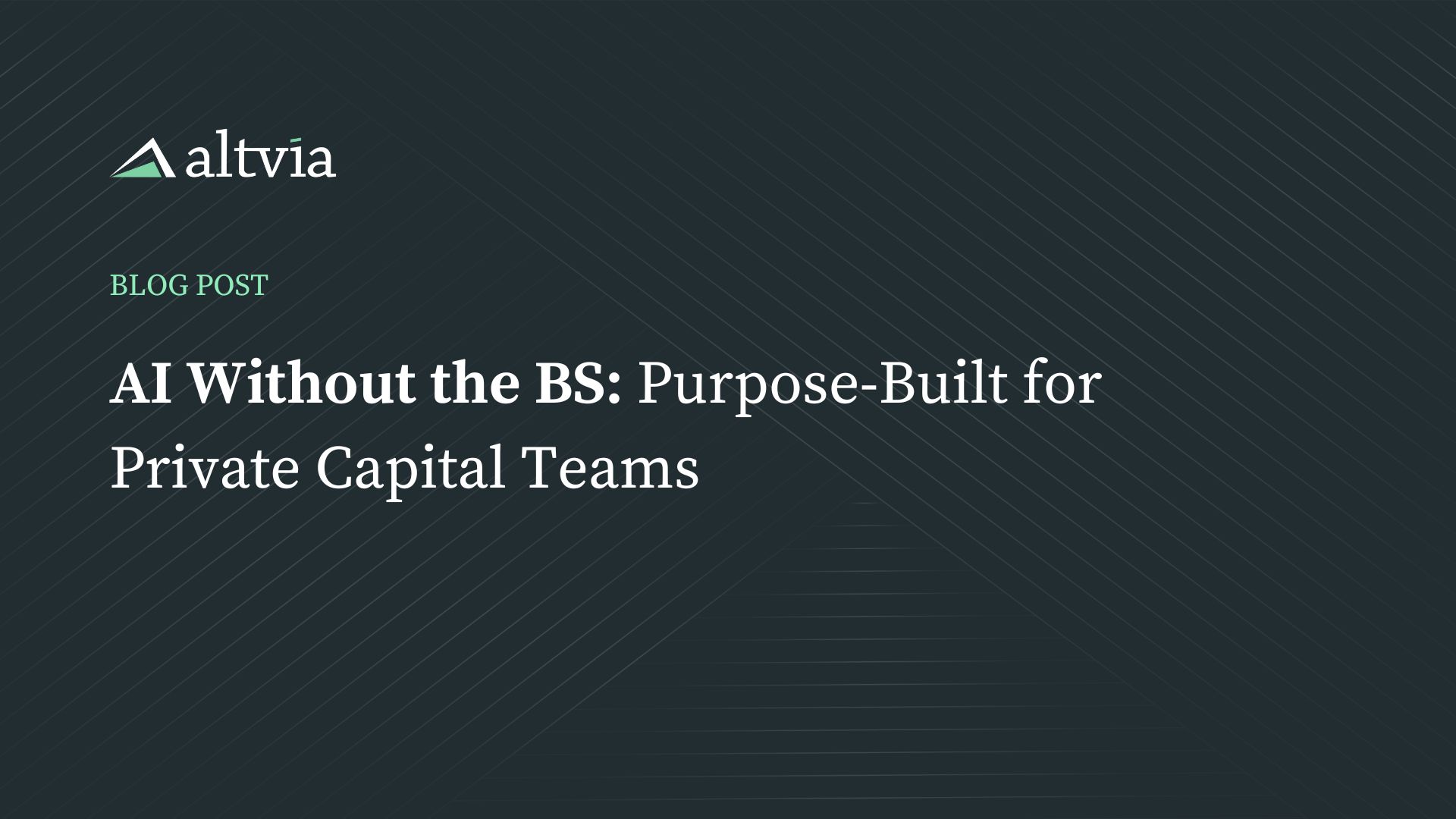
The pace of AI innovation in private equity is no longer a future-facing topic—it’s a present-day imperative. In just two years, generative AI has evolved from exploratory pilots to delivering measurable business outcomes.
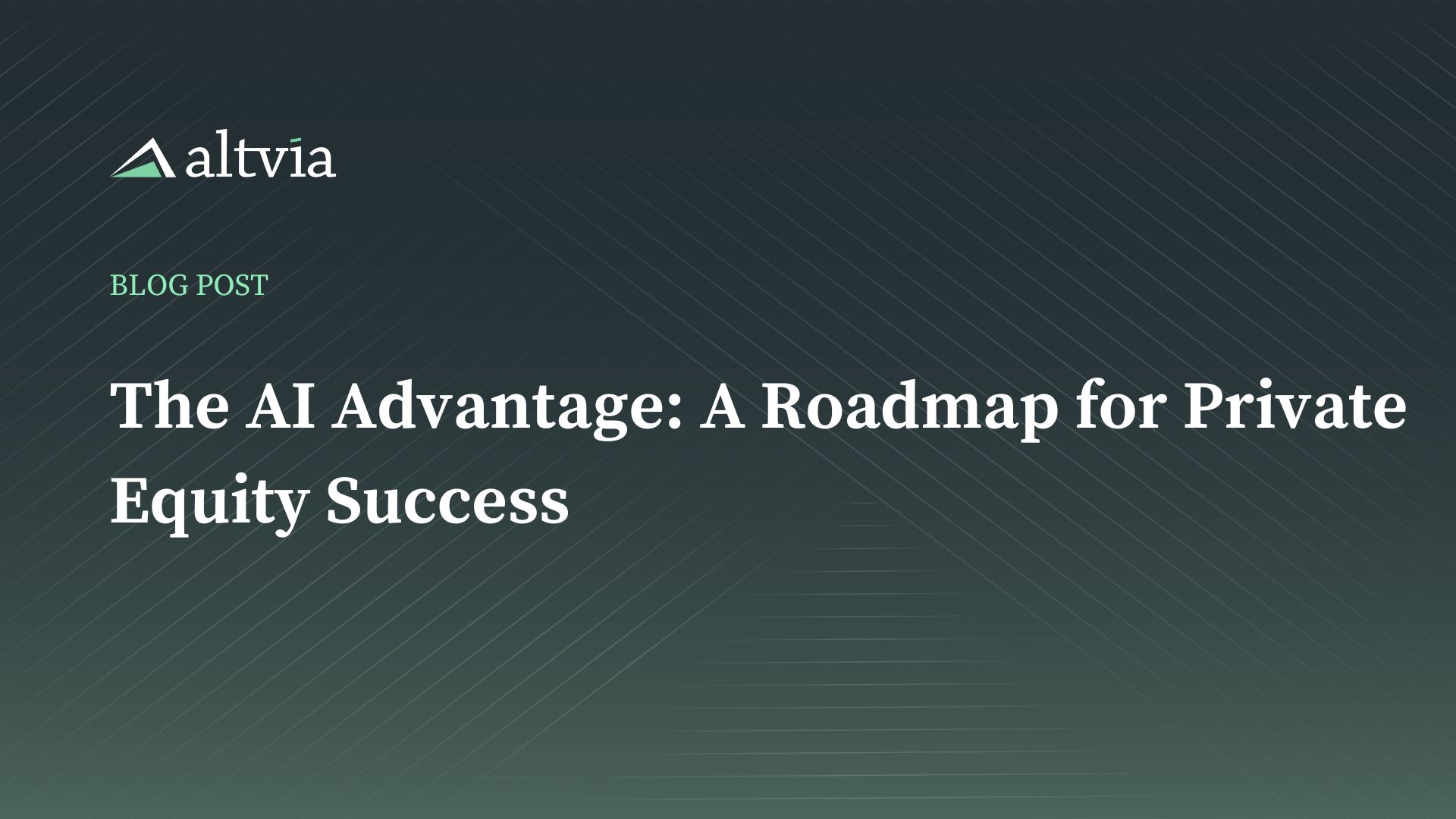
The pace of AI innovation in private equity is no longer a future-facing topic—it’s a present-day imperative. In just two years, generative AI has evolved from exploratory pilots to delivering measurable business outcomes.
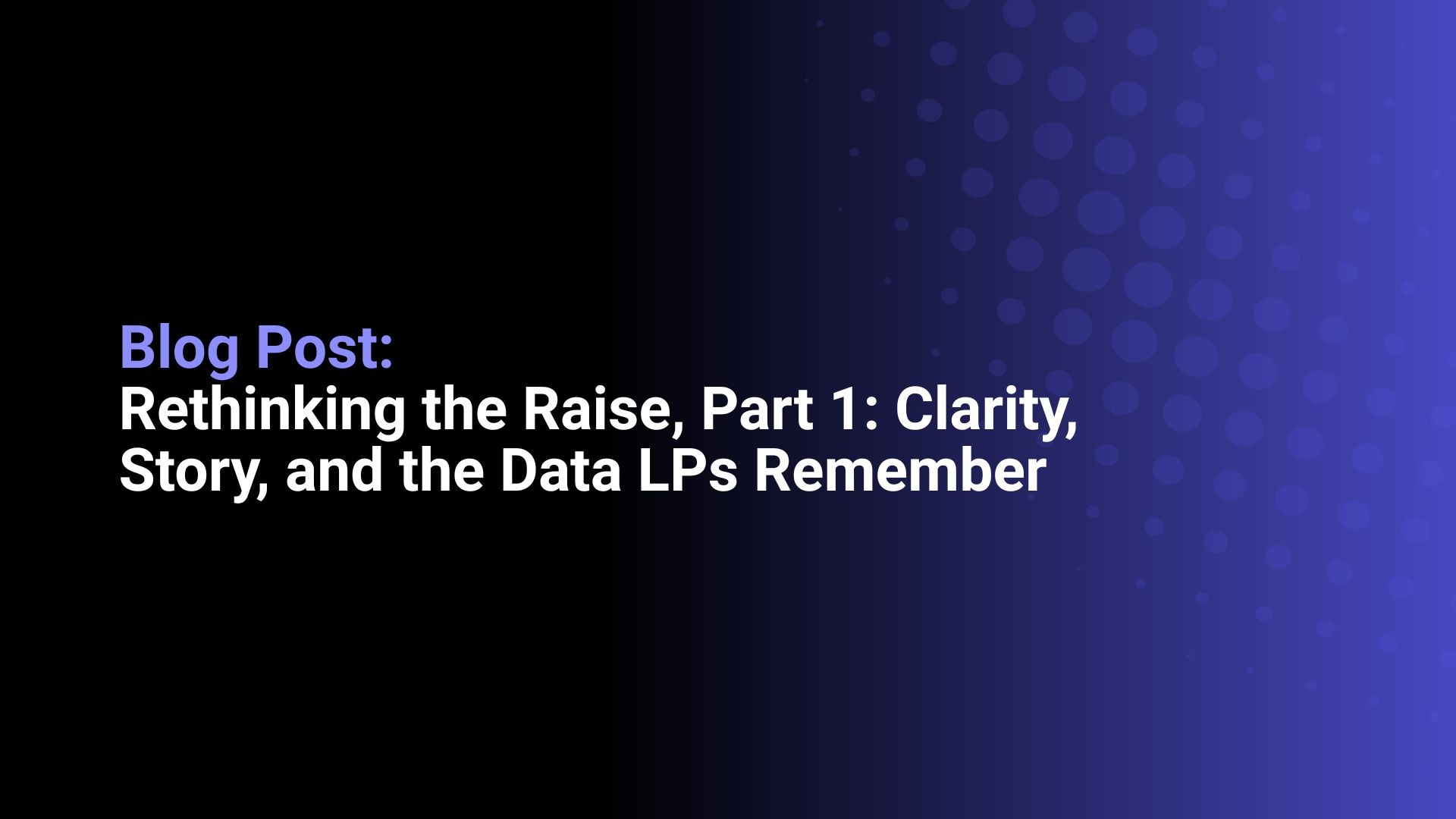
Private capital is at an inflection point. Fundraising is taking
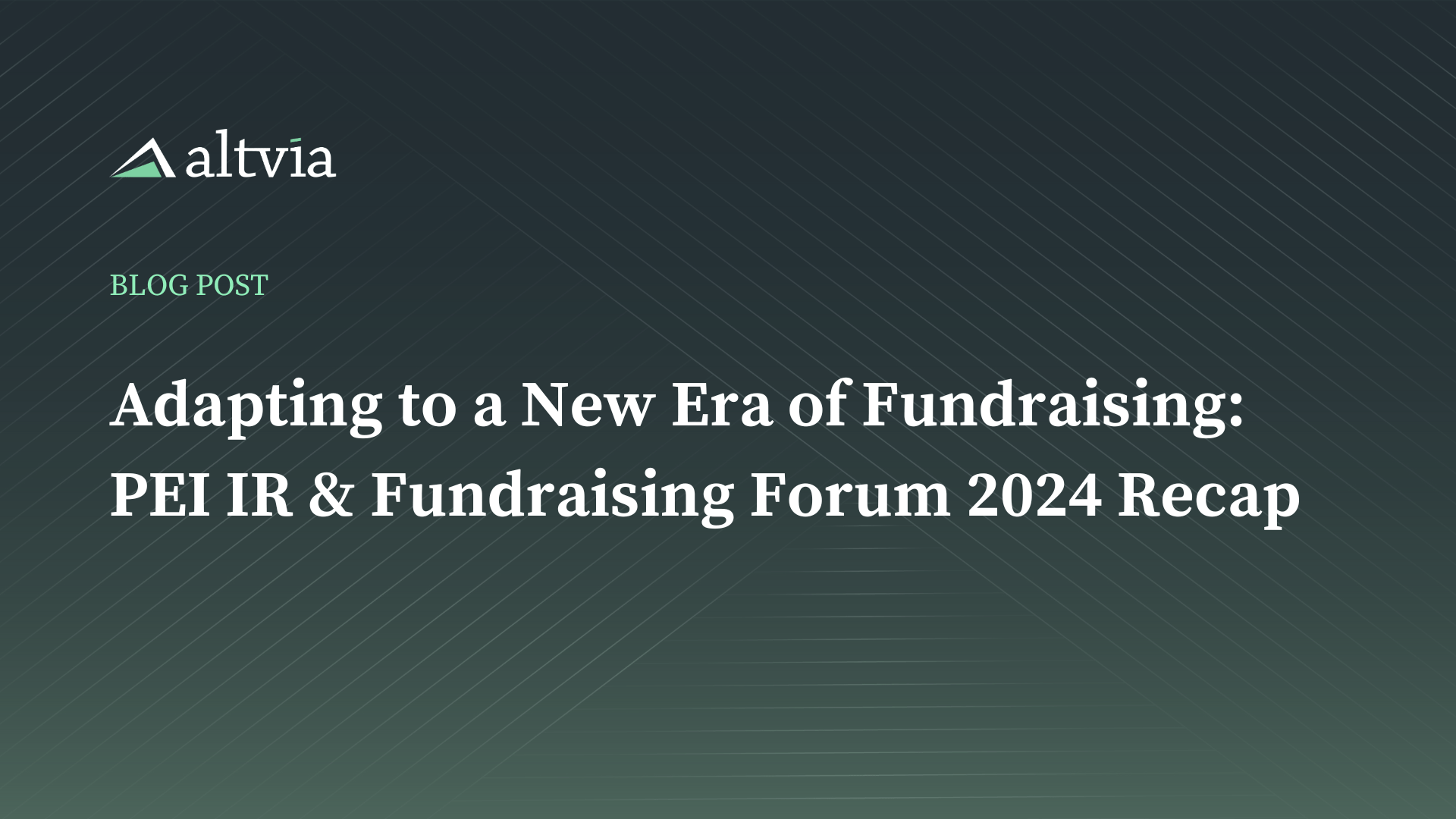
If your firm is ready to evolve, it’s time to explore how platforms like Altvia can help you meet the changing demands of your investor base.
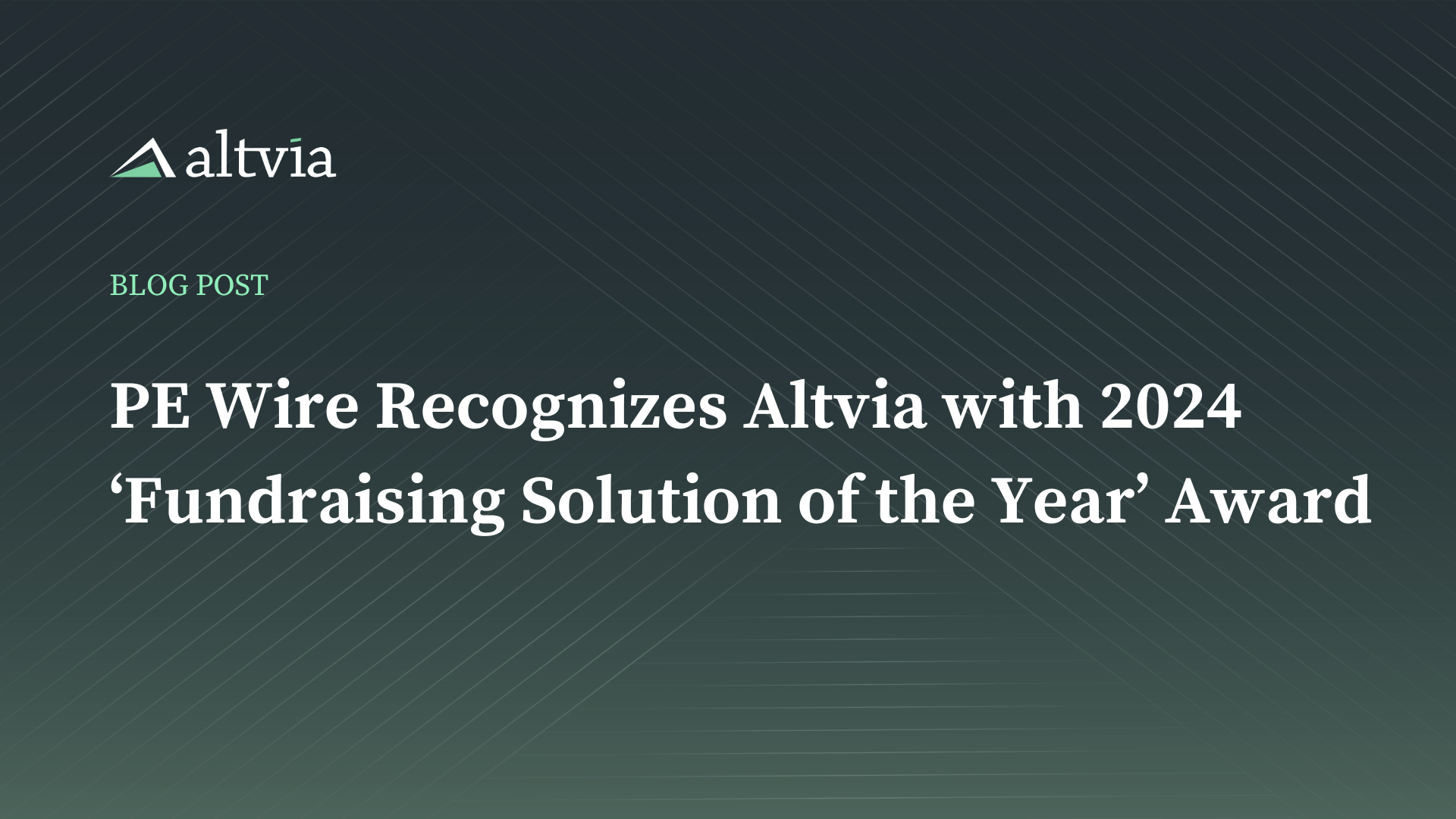
Altvia was awarded ‘Fundraising Solution of the Year’ at the Private Equity Wire US Awards ceremony on Wednesday evening, October 9, 2024, at the The Penn Club of New York.
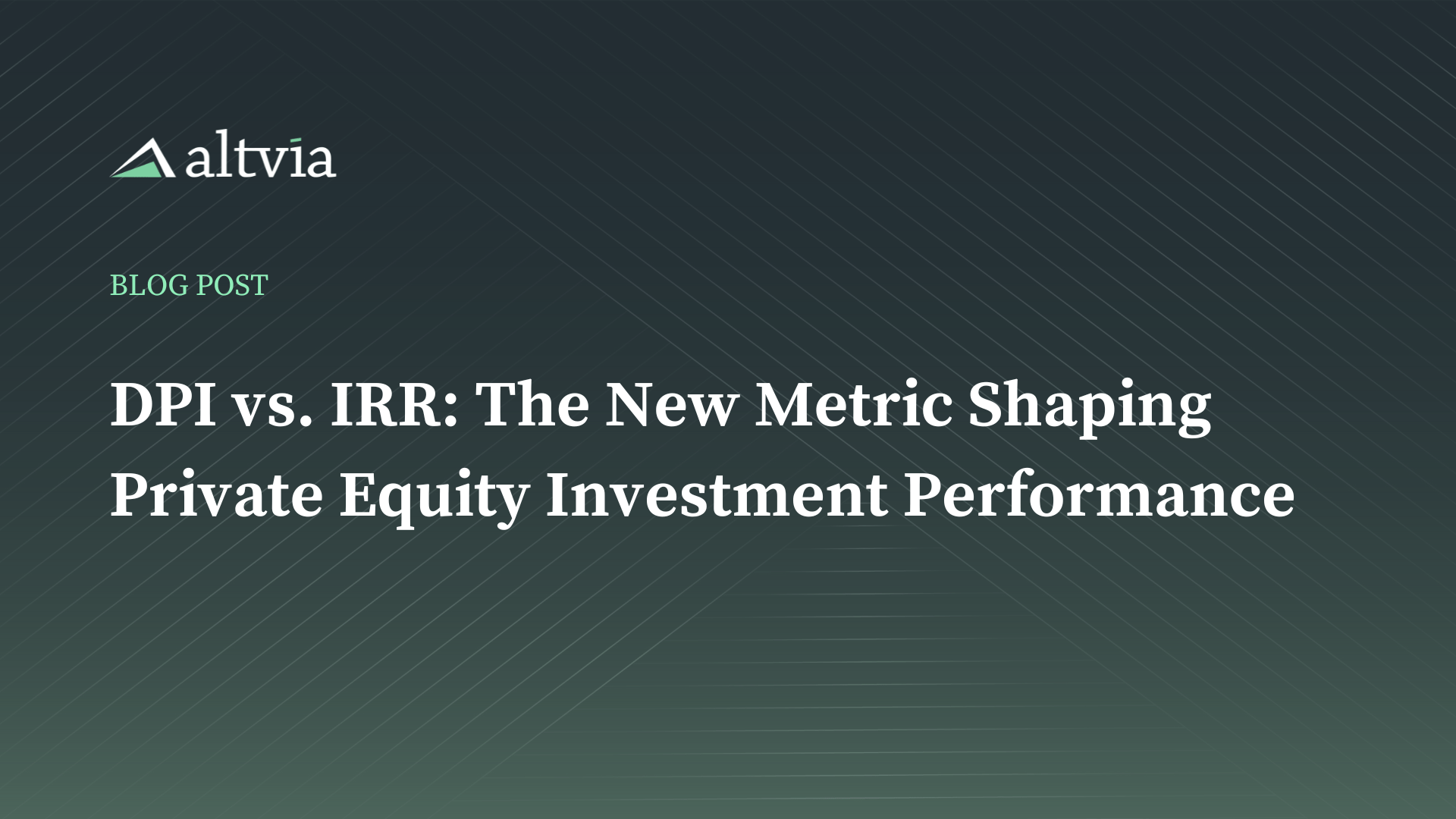
Learn the differences between Distributed to Paid-In Capital (DPI) and Internal Rate of Return (IRR) and their pros and cons based on our industry technology experiences.
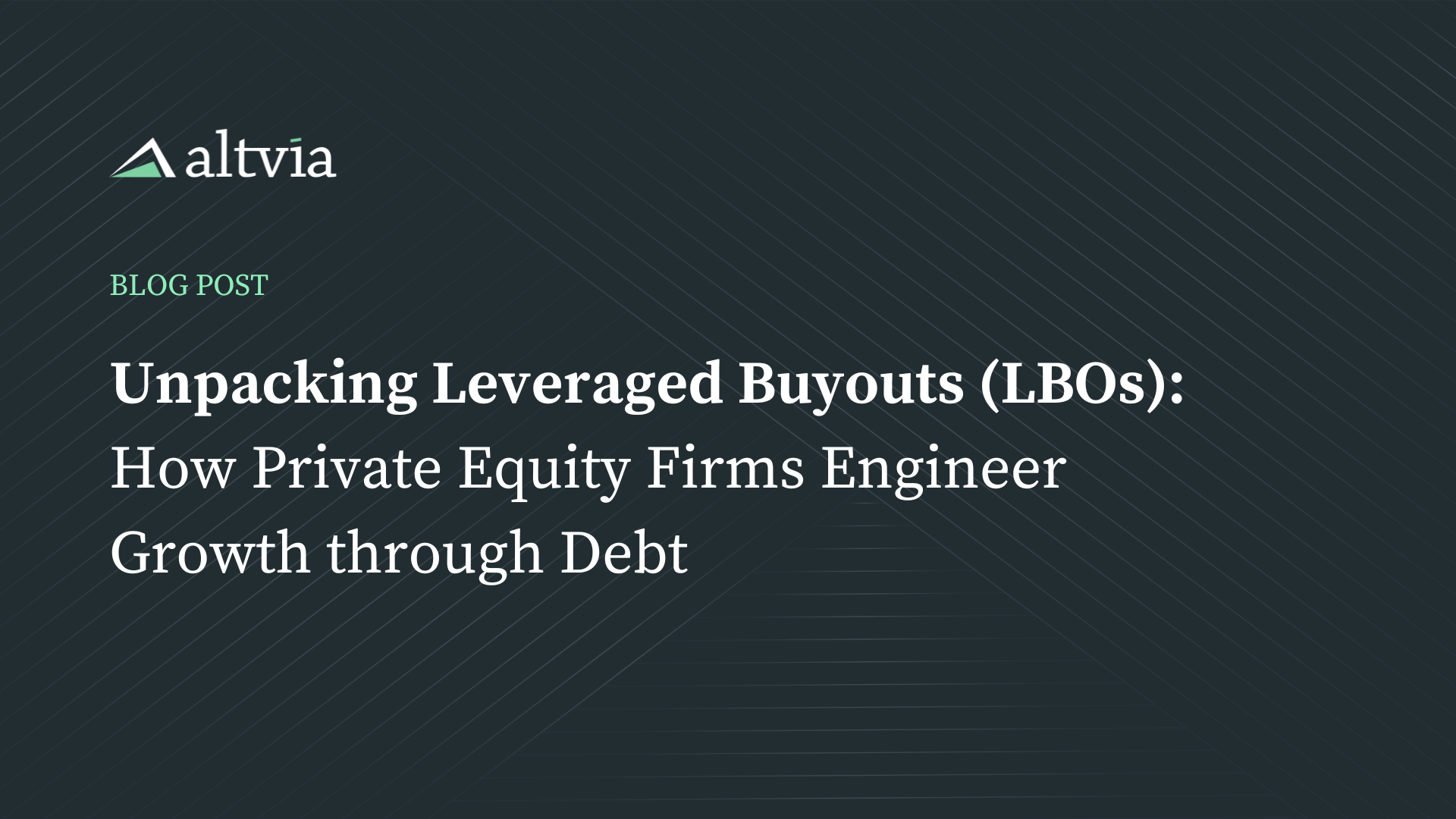
Leveraged buyouts (LBOs) are a cornerstone of private equity, where financial engineering meets strategic acquisition.

As we navigate this AI revolution, one thing remains clear: the future belongs to those who embrace innovation and adaptability.
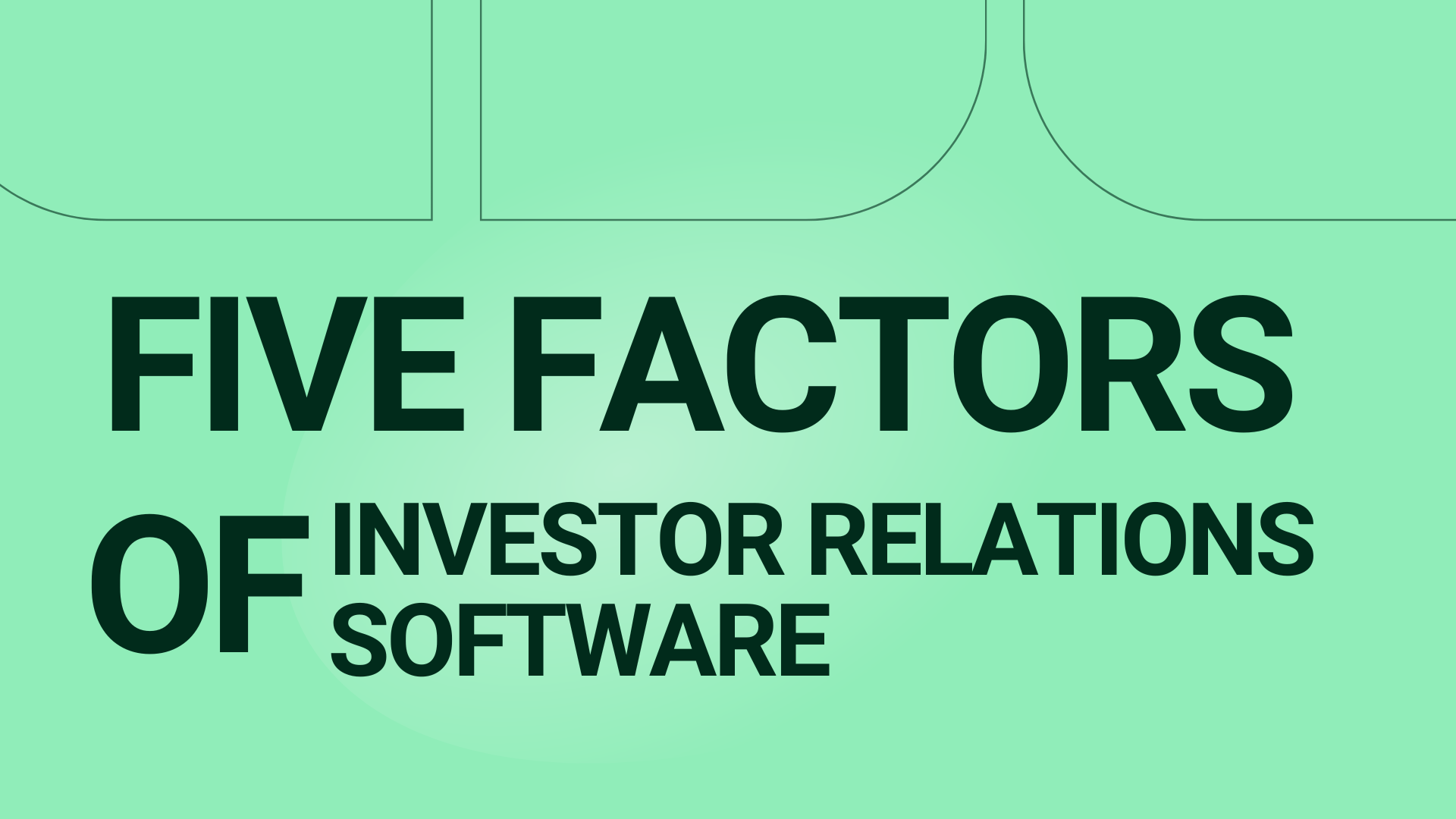
Investor Relations might not always take center stage in private equity circles, but it serves as the backbone of a firm’s credibility, transparency, and growth. In a market where regulatory scrutiny constantly changes and investor expectations continue to rise, the right investor relations software can be a game-changer.

Have you heard the buzz? From private equity giants to up-and-coming venture capital shops, every player in alternative investments is sprinting to get their hands on AI. But here’s the million-dollar question: Is the AI you’re adopting really serving your firm’s unique strategy, or are you just getting the same “white-labeled” tool everyone else has?
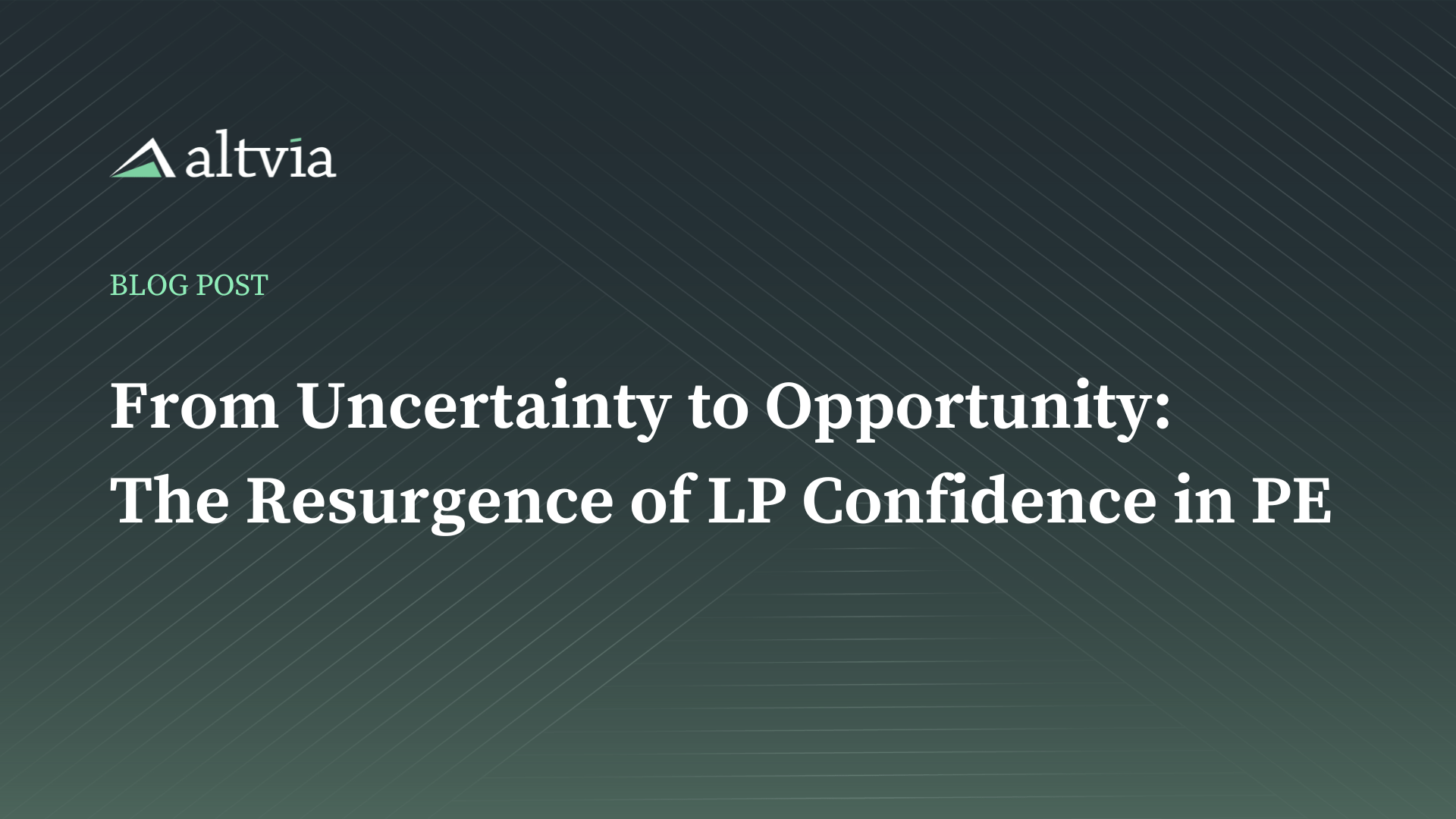
In this blog, we will cover the key factors contributing to this renewed confidence, explore the shifting dynamics within the private equity landscape, and more.
Schedule a Demo ➔
You’ll be amazed at what Altvia can do for you and your team. Let’s talk and see how we can help.
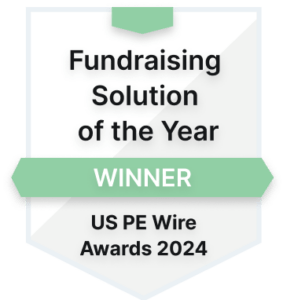
Pick a Meeting Time
Fill out the form below with your work email to be routed to a calendar to select your meeting time.
